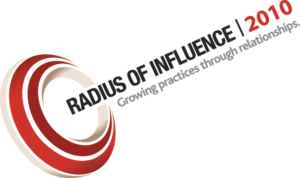 This is the 1,000th post on this blog. Other than a dozen guest blogs, all the writing has been mine.
This is the 1,000th post on this blog. Other than a dozen guest blogs, all the writing has been mine.
And there have been more than a few surprises, as I sifted through the metrics and links I’ve seen. So for one day only, I’ll navel-gaze at some of those things that I never would have expected when I went live almost four years ago (on November 18, 2006):
1. The most popular post came this year: Scalia: “There is No Right to Secede” with a whopping 33,000 page views (as measured by Google Analytics), plus another 10,000 from this follow-up. The second most popular, also this year, with over 12,000 page views was my deconstruction of an April Fool’s Day prank: About That White House Blogger Post from Yesterday….(NYT Gets Punked). Also popular with over 10,000 views was an April Fool’s Day prank from 2008: Supreme Court Grants Cert in “Fantasy Baseball” Case; Three Justices Recuse Themselves Due To Participation in High Court League.
It would have been nice if one of those posts was actually about New York personal injury law, but if I were a predictable one-trick pony writing this blog wouldn’t have been as much fun.
2. Given the popularity of the White House and Supreme Court posts, I’ve had some visitors from those houses: I’ve had 28 White House visitors (Hi Barack!) and 75 from the Supreme Court (Hi Nino!).
3. The most unusual citation to this blog came in an editorial in the Economic Times of India, about a post I wrote when George Bush‘s dog took a bite out of a reporter.
4. The most political citation to this blog was a mention in an editorial in The Washington Times regarding Sonia Sotomayor and her private practice firm Sotomayor & Associates, which didn’t happen to have any actual associates.
5. After the US, the most likely place a visitor came from was: Canada, U.K., India, Australia, Germany, China, Phillipines, Vietnam and France. I had 240 visitors from Saudi Arabia, 52 from Iran and 96 from Belarus (the old country for my clan).
There’s no love for me in some other countries, though, as I’ve never had even a one-second visit from some indexing robot from North Korea, Somalia (and several other African nations), Turkmenistan and Greenland;
6. Over the past year I’ve averaged about unique 550 visitors per day. Saturday is, by far, the slowest. There have been over 200,000 unique visitors who’ve had almost 300,000 page views. Feedburner says I have over 500 subscribers.
7. The biggest source of referrals to this blog is Google, via a natural search. Direct hits, without a search or link, also rank very high. The blogs that have sent me the most readers are: Above the Law (over 66,000), Overlawyered (almost 10,000), Pajamas Media (Instapundit) and Law.com. Twitter, for those that care about that service, was in 16th place with just over 2,000.
8. The best single lesson in blogging that I got was when Overlawyered added me to its blog roll in my first year;
9. And the posts that were the most fun to write? Blawg Review #134 based on the New York City Marathon and the Halloween-themed Blawg Review #236 (The Bogeyman Cometh). I also have a list of ” greatest hits” that I personally liked, regardless of whether they were popular or not with readers, from 2006 – 2008 and 2009.
10. Writing wouldn’t be as much fun without the feedback. Thanks to all those that have paid a visit, read some of my ramblings, and left comments.



